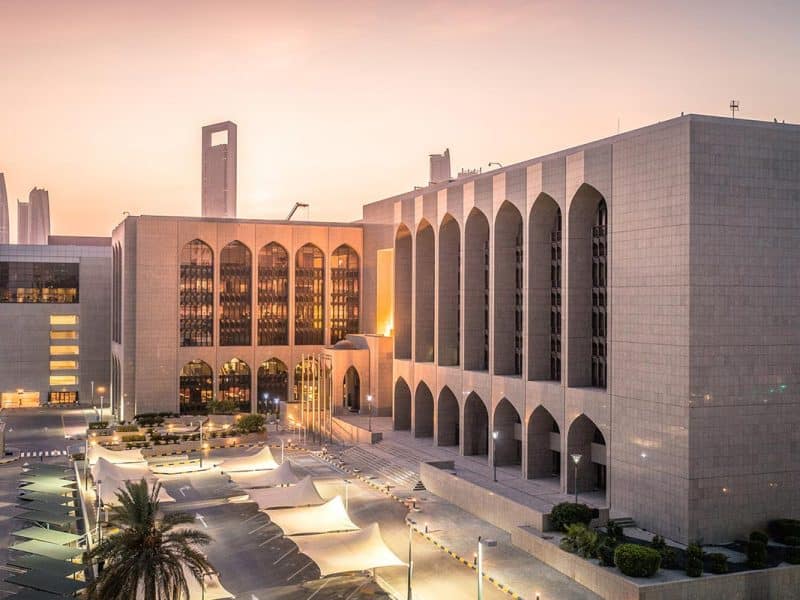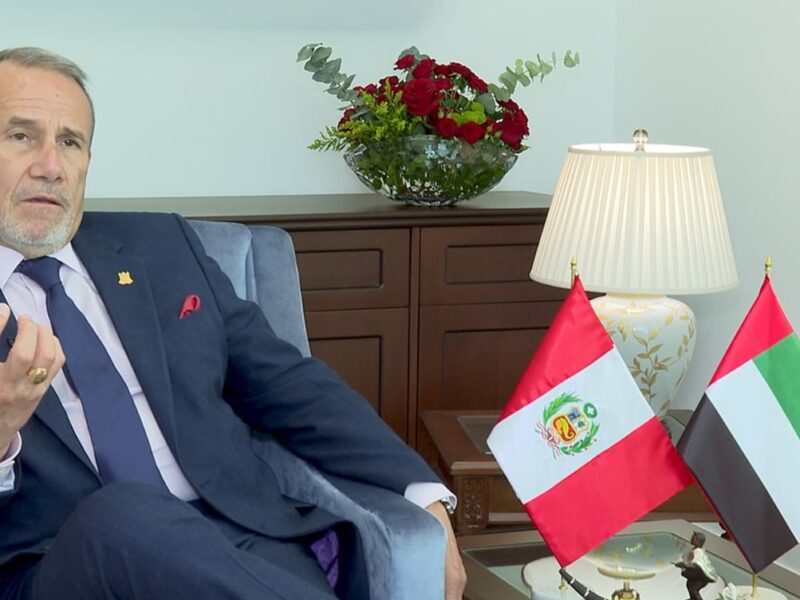Bill Gates is famously quoted as saying “If I was down to my last dollar, I would spend it on public relations”. And there are a great many who would agree with him.
For businesses serious about making a name for themselves, PR is a vital part of their existence. Not only is it an important tool for informing the general public about your product or services, but it can also establish you as an expert in your field, put you into contact with potential collaborators, unite your employees under common key messages, and help steer your ship through difficult waters.
The worth of PR is especially strong for start-up businesses who must work especially hard to make a mark and get a step ahead of their competition.
One man well versed in what’s needed for new businesses to succeed on this front is Samer Renno, founder and CEO of Renno Communications Group.
He argues that there are few things as important to new businesses as external communications. And he should know, having been in PR since the early 1990s, and going through the gruelling start-up process himself.
“The best place for a start-up to start is external communications,” he says.
“It’s basically direct interaction with the media. Press releases, interviews, features, briefings, and things like this. It’s direct engagement that will immediately get your key message across to people. External communications is so valuable for start-ups.”
Launching Renno Communications Group in Lebanon in 1999, having worked in PR in Dubai for several years before that, Renno has seen more than his fair share of start-up successes and failures, and is straight to the point in identifying a major problem among some entrepreneurs.
“One of the main difficulties is that a lot of start-ups don’t see external communications as being as important as it really is. They don’t put enough focus on it in their budgets and business plans.
“It is as important – if not more so – than where your office is going to be, how many people you’re going to hire, and other aspects like this. It has to be part of your thinking from day one – it’s that important.
“When you start a business, you’re a small fish in a big pond. Whichever sector you’re in, there will be a lot of competitors who are both more established than you, and who are already using PR. You need an external communications strategy to compete with them and to communicate effectively with the market. You need to be able to bestow legitimacy among target markets, investors and stakeholders.
“That’s why PR is so vital to start-ups.”
When Renno started out in PR, the industry in the Middle East was very different to today.
Article continued on next page…
He reveals there was enormous confusion about the distinction between PR and advertising, not to mention the fact that there were fewer specialised agencies it what was then an immature marketplace.
But something about the direction of the discipline enlivened an entrepreneurial urge in Renno which he was determined to act upon.
He says: “These days a lot of people have the mindset to start their own business. They have an entrepreneurial spirit and they are ambitious. I was that person in the late 1990s.
“In 1999 I decided I’d like to have my own agency. I had enough experience, I knew the business, and I understood the market well enough to try it.
“People said ‘you have a great career – why shift?’ and that’s the million dollar question. Do you stay in a comfortable zone with a comfortable salary, or do you take that challenge?
“I thought about it and did a business plan and feasibility study, and decided that I wanted to go for it, but not in Dubai. It wasn’t as strong here as it is now, and I thought that starting in Lebanon would be better.
“The study I did found there was no competition in that market. I was the only specialised PR agency in Lebanon, and from there I believed I could cover the Levant region and French speaking Maghreb region.
“I kept an eye on GCC as well, but had my hub in Beirut.”
Big name clients started to come in, including Pepsi, who gave Renno his big break. And the time he put into researching the market pre-launch began to bear fruit.
“Foreign investment started moving into the region, wanting proper positioning in the market with the help of somebody who has a western and eastern bridge between cultures. Which is where we came in.
“We had been exposed to a lot of cultures within the region, and beyond. I’m American educated – I studied and worked there and that’s helped too. People like that you understand different cultures. We knew what people from other countries wanted from this region, and how to get it, and also how companies from this region can have an impact outside it.”
It was also during this time that Renno truly gained an appreciation for the value of PR for start-ups. Attempting to develop his business as well as the nascent market at the time, he found himself having to do the PR for public relations. Something he calls “a major challenge”.
He says: “It wasn’t that easy, I must say. The Lebanese market was very young on the economic front and when it came to understanding full value of PR. We had to do a lot of education. We had to write a lot of articles, run awareness campaign, do interviews.
Article continued on next page…
“We really had to publicise public relations and the value of it in that market. Had to work on educating prospective clients, stakeholders, potential investors, and so on.
“Eventually we managed it and became a reputable agency. A lot of people approached us, including clients such as VISA and Intel. We became an attention grabber, and gave the market there much more value.”
Returning to Dubai in 2007 presented a new challenge for Renno. The Dubai he came back to was a very different place to the one he left in 1999, but for the duration of his time away, he had the foresight to maintain his contacts.
“I would come here two to three times per year to maintain contacts of people I knew before and to attend exhibitions,” he says.
“Those guys who used to be small players at the time stayed in the country and became big names, decision makers and business leaders. So it worked out quite well for me!
“I’ve always eyed Dubai, but there was something that kept me going with the hub in Lebanon. We had a lot of projects going on in the region – Iraq, Kuwait, Egypt, Jordan, and so on. My family was there, the company was doing very well, and we were comfortable.
“When the situation in Lebanon started to deteriorate with the economy and security in 2006 we decided that was it.”
It wasn’t long before Renno secured his first client in the UAE, winning the account with Amlak Finance after a six-way pitch. It was this win that pushed him into setting up properly in Dubai.
“We had helped Amlak’s operations in Egypt, so we had gained their trust through that,” he says.
“They were very supportive of us but wanted to see our trade license, so that pushed us into a corner and meant we had to set up in Dubai properly. “
The rest, as they say, is history. But success certainly hasn’t bred complacency. And it certainly hasn’t meant Renno has lost touch with what’s important for start-ups.
He says: “I understand there’s only so much capital that start-ups can work with initially, and that many say ‘should we spend it on PR or is there something more important?’ It’s a difficult position to be in.
“But too many businesses think that PR is a luxury. It’s not a luxury, it’s a necessity. It’s part and parcel of business and as important as hiring a bookkeeper, a manager, or anything like that. You need to allocate money to it.
Article continued on next page…
“There are also some companies who say ‘let’s hire an agency to do a launch event or press conference’ and that’s it. They forget about the full strategy which would maintain the flow of positive news, creating that awareness about your company.
“Venture capitalists who have invested in your company would like to see and hear about your product, so would prospective clients, so would your employees. Seeing you in the media as an authority – it puts you in a very positive light.”
For Renno, a key concern for new businesses is having “a voice among the noise”. He argues that in order to be heard, you need somebody to amplify what you’re saying – something.
He adds that technological advancements have made it easier for your business to communicate with the world.
“Digital has made it easier. There’s another avenue of communication open to you now, and the internet and social media are increasingly important to companies. We were one of the first companies to employ new tactics when digital media started to become big. We conducted a campaign to create that awareness among clients.
“It’s our job to stay up to date with things like that and use them to our clients’ advantage.”
Staying up to date is one thing, but getting ahead of the game is quite another. Yet Renno believes the UAE, and Dubai in particular, has become adept at looking ahead to what the future may bring for PR.
“This is one of the first markets in the Arab world where people not only attempt to understand PR, but also move forward with it. It happened when the financial crisis hit and budgets were slashed. Companies knew they had fight to keep their customers.
“Businesses had to look ahead and set trends. We created a vision within the agency called Echo Trends, which analyses and researches the service sector. Before that I used to think our job was protecting brands and positioning senior management of companies as authorities in the industry, but I realised nobody’s looking after the front line soldiers in these services.
“These are the guys who are in direct contact with the customers. If they don’t treat the customers well, the customers have a really loud voice – they could really blast the image and reputation of the company. So we had to have a new approach.”
Keeping one step ahead of the market is something Renno admits he puts a lot of time into, but he’s a firm believer of getting out what you put in.
He concludes: “I’m a workaholic, which is good for the business, but probably bad for my family. But you have to work hard in business.
“Ultimately it’s the passion that you show which brings you the rewards. If you put in your passion, then you can have great success.”









